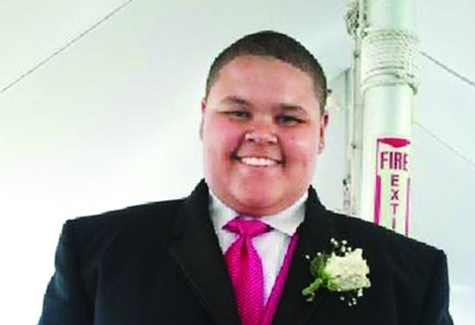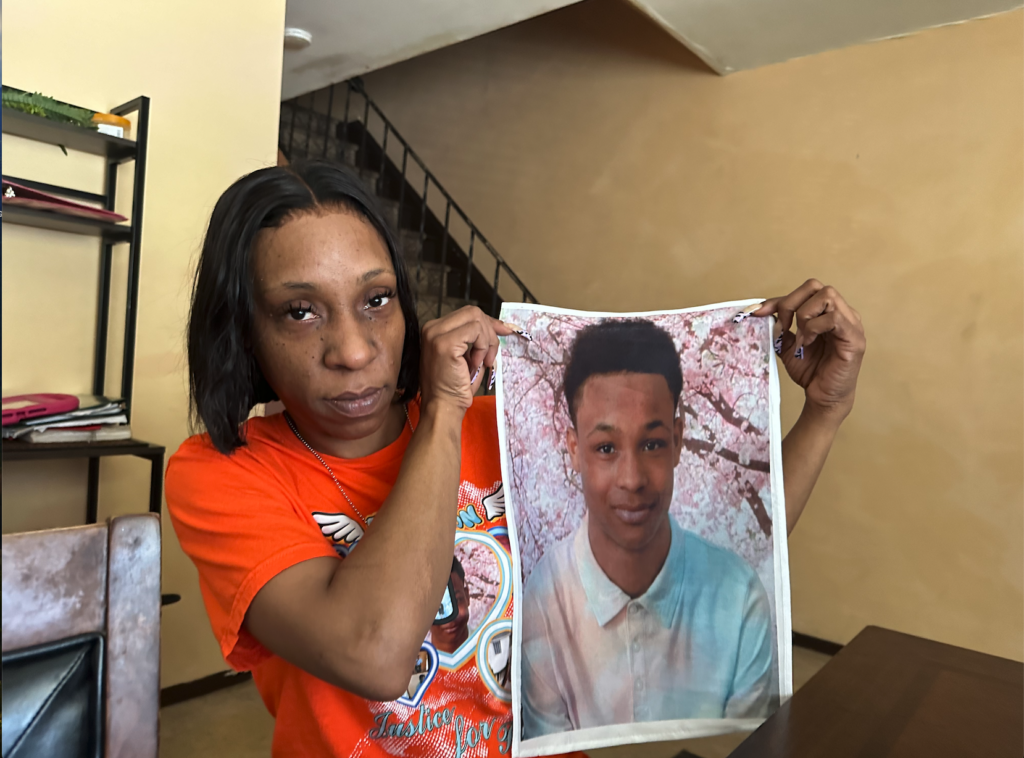Cover Story: Gel candles pulled from shelves in wake of accidents

As 14-year-old Michael Hubbard of Riverhead remains in Stony Brook University Medical Center, fighting for his life almost three weeks after a gel candle accident, the manufacturer has voluntarily decided to recall the product after The New York Times ran a story Saturday revealing the dangers of the candles.
Michael’s story also made headlines elsewhere around the nation after his mother appeared on ABC’s “Good Morning America,” NBC, CBS and News 12.
Michael’s accident occurred May 28 as he poured citronella-scented gel into a previously lit candle before a wedding celebration at the Riverhead home of his aunt, Fran Reyer-Johnson. The bottle of FireGel brand fuel exploded in his hand, covering his body with the burning jelly. He suffered third-degree burns over 40 percent of his body. His mother, Nancy Reyer, was also injured while trying to extinguish the flames.
As of Tuesday, Michael was still in a medically induced coma, Ms. Reyer-Johnson said. His heart had stopped beating Thursday night, though his pulse was brought back through a defibrillator. Doctors say his condition has been improving slightly and he is now stable.
Neighbor Jerry Halpin, who helped put out the flames that burned Michael, likened the gel to “napalm.”
“It sounds horrific because it was,” said Mr. Halpin, a pastor at North Shore Christian Church in Riverhead. “[The gel] wasn’t released from his body.”
Several days after Michael’s accident, 24-year-old Nick Stone, a recent graduate of University of Colorado in Boulder, suffered second- and third- degree burns over 40 percent of his body in an almost identical mishap in Manhattan, according to his stepfather, John LaViolette. Mr. Stone has been at New York Presbyterian Hospital since.
On May 21, Rachael Smilowitz suffered second- and third degree burns in a gel candle accident in South Carolina, according to an NBC news affiliate in Charleston.
The accidents all involved FireGel brand citronella gel, a jellylike substance that is poured into ceramic fire pots, that was purchased at Bed Bath & Beyond.
And according to records, there have been more accidents in recent years.
A 42-year-old woman suffered second-degree burns on Aug. 23, 2010, and a man suffered burns on his legs on June 24, 2010, in almost identical accidents, according to the U.S. Consumer Product Safety Commission. Ten additional incidents in which people suffered first-, second- and third-degree burns from gel candles have been reported to the U.S. Consumer Product Safety Commission in the past three years, according to records.
When Napa Home & Garden Inc., which manufactures the firepots and packages the fuel, was told of the accidents by The New York Times, it asked Bed Bath & Beyond on Friday to pull both products from store shelves until it could add new warning labels to them. A spokeswoman for Bed Bath & Beyond confirmed that stores nationwide were told to stop selling the products Friday afternoon, the Times reported.
“We have sold tens of thousands of Fire Burners and fuel during the last two years and have always considered them safe products.” Jerry Cunningham, owner of Napa Home & Garden Inc said in a statement. “We’re a small family-owned business, we care very much about our customers and we want to help assure our products are used safely.”
The warning label on the products reads: “Use Flame Snuffer included with each [candle] to extinguish flame. Exercise the same precautions as you would with any other open fire. Do not add fuel when lit and never pour fuel on an open flame or hot surface. Never touch unit during or after burning gel fuel. [Candle] may be extremely HOT,” according to the Napa release.
The gel candles could not be found on the shelves of the Riverhead Bed Bath & Beyond store Tuesday afternoon.
But according to the Good Morning America report on Monday, the fuel and firepots could still be found at Bed Bath & Beyond stores in Maryland.
Bed Bath & Beyond representatives did not respond to requests for comment.
Although Michael and his family have suffered an especially painful few weeks, they hope the accident and the attention it has received will prevent others from suffering a similar fate.
“We need to take it off the market,” Ms. Reyer tearfully told “Good Morning America.” “It’s a lethal weapon. To me, it’s gasoline in a can.”








